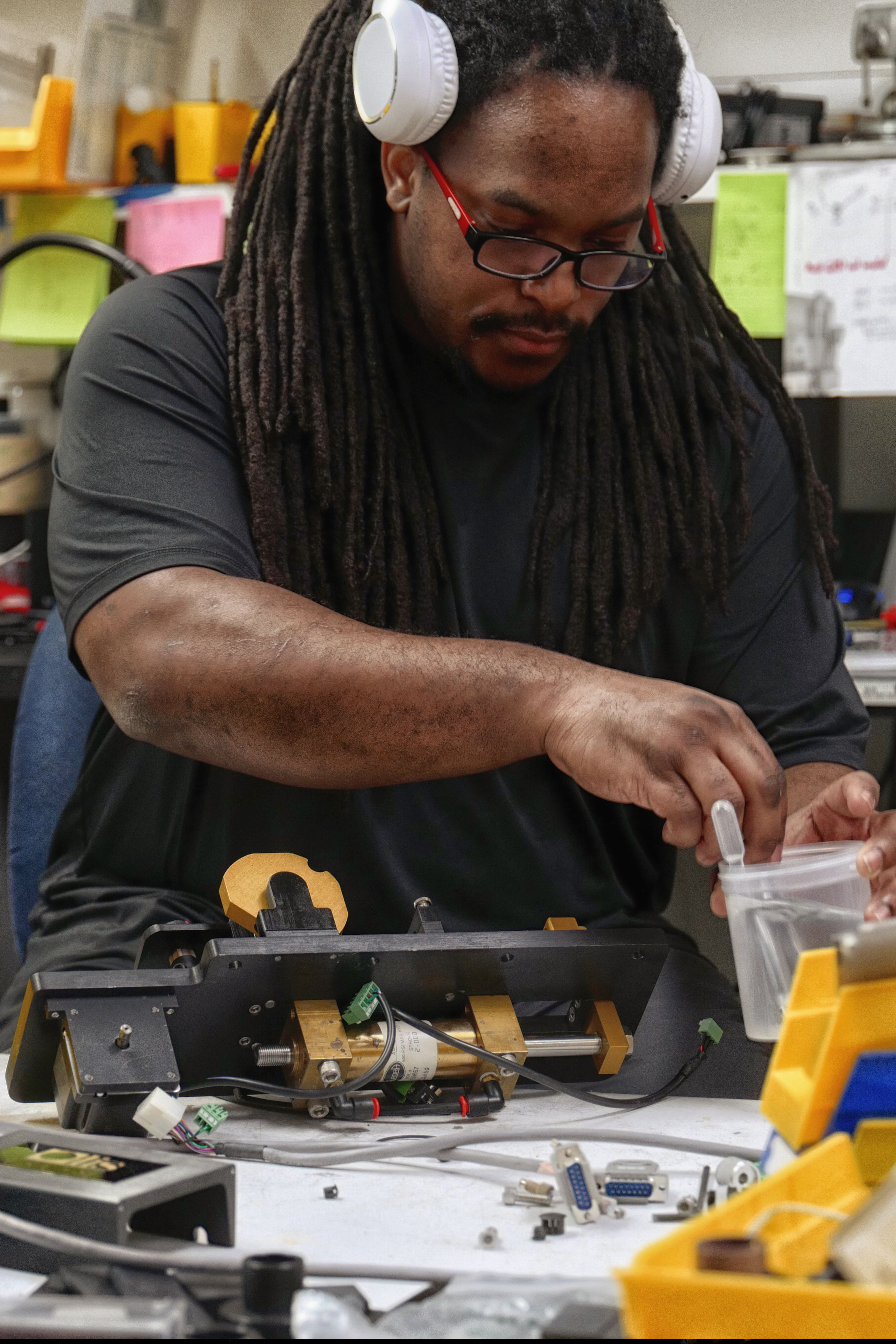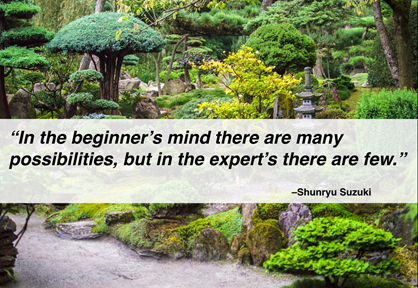The Ultimate Guide To Uv/vis/nir
The Ultimate Guide To Uv/vis/nir
Blog Article
Not known Factual Statements About Uv/vis
Table of ContentsUnknown Facts About SpectrophotometersWhat Does Uv/vis/nir Mean?Indicators on Uv/vis You Should KnowFascination About SpectrophotometersUv/vis for BeginnersOur Spectrophotometers IdeasThe smart Trick of Spectrophotometers That Nobody is Talking AboutCircularly Polarized Luminescence Things To Know Before You BuyNot known Details About Circular Dichroism Our Circularly Polarized Luminescence StatementsTop Guidelines Of Uv/vis/nirExcitement About Uv/visNot known Incorrect Statements About Uv/vis
It is then scanned through the sample and the referral options. Portions of the occurrence wavelengths are transferred through, or shown from, the sample and the referral. The resultant light strikes the photodetector device, which compares the relative strength of the 2 beams. Electronic circuits convert the relative currents into direct transmission portions and/or absorbance/concentration values.The transmission of a recommendation substance is set as a baseline (information) worth, so the transmission of all other substances are tape-recorded relative to the preliminary "zeroed" compound. The spectrophotometer then transforms the transmission ratio into 'absorbency', the concentration of particular elements of the test sample relative to the initial compound.
Given that samples in these applications are not readily available in big quantities, they are specifically matched to being evaluated in this non-destructive technique. In addition, precious sample can be saved by utilizing a micro-volume platform where as low as 1u, L of sample is required for total analyses. A short explanation of the procedure of spectrophotometry consists of comparing the absorbency of a blank sample that does not contain a colored compound to a sample that includes a colored substance.
Spectrophotometers Can Be Fun For Anyone
In biochemical experiments, a chemical and/or physical home is picked and the procedure that is used specifies to that home in order to obtain more info about the sample, such as the quantity, purity, enzyme activity, and so on. Spectrophotometry can be utilized for a variety of strategies such as identifying ideal wavelength absorbance of samples, identifying ideal p, H for absorbance of samples, figuring out concentrations of unidentified samples, and identifying the p, Ka of different samples.: 21119 Spectrophotometry is likewise a handy procedure for protein purification and can likewise be used as a technique to create optical assays of a compound.
It is possible to understand the concentrations of a two element mix utilizing the absorption spectra of the basic solutions of each component. To do this, it is required to understand the extinction coefficient of this mix at two wave lengths and the termination coefficients of options that contain the known weights of the 2 components.

What Does Circular Dichroism Mean?
Area. The concentration of a protein can be approximated by determining the OD at 280 nm due to the existence of tryptophan, tyrosine and phenylalanine.
Nucleic acid contamination can likewise interfere. This approach needs a spectrophotometer capable of determining in the UV region with quartz cuvettes.: 135 Ultraviolet-visible (UV-vis) spectroscopy includes energy levels that delight electronic transitions. Absorption of UV-vis light thrills molecules that remain in ground-states to their excited-states. Noticeable region 400700 nm spectrophotometry is used extensively in colorimetry science.
These curves can be used to evaluate a brand-new batch of colorant to inspect if it makes a match to specs, e
Traditional visible standard noticeable area not detect if spot colorant or the base material has fluorescence. This can make it difficult to manage color problems if for example one or more of the printing inks is fluorescent. There are 2 significant setups for visual spectrum spectrophotometers, d/8 (round) and 0/45.
Researchers utilize this instrument to determine the amount of compounds in a sample. If the substance is more concentrated more light will be taken in by the sample; within small ranges, the Beer, Lambert law holds and the absorbance in between samples differ with concentration linearly. When it comes to printing measurements two alternative settings are typically utilized- without/with uv filter to manage better the impact of uv brighteners within the paper stock.
The Best Guide To Circular Dichroism
Some applications require little volume measurements which can be carried out with micro-volume platforms. As described in the applications section, spectrophotometry can be used in both qualitative and quantitative analysis of DNA, RNA, and proteins. Qualitative analysis can be used and spectrophotometers are used to tape spectra of substances by scanning broad wavelength areas to determine the absorbance homes (the strength of the color) of the substance at each wavelength.

The Facts About Spectrophotometers Revealed
One major element is the type of photosensors that are available for various spectral areas, however infrared measurement is likewise difficult since virtually whatever produces IR as thermal radiation, particularly at wavelengths beyond about 5 m. Another issue is that many materials such as glass and plastic soak up infrared, making it incompatible as an optical medium.
Samples for IR spectrophotometry may be smeared between two discs of potassium bromide or ground with potassium bromide and pressed into a pellet. Where liquid solutions are to be measured, insoluble silver chloride is utilized to build the cell. Spectroradiometers, which run practically like the noticeable area spectrophotometers, are created to determine the spectral density of illuminants. Recovered Dec 23, 2018. Fundamental Lab Techniques for Biochemistry and Biotechnology (Second ed.). The essential guide to analytical chemistry.
Oke, J. B.; Gunn, J. E.
Getting My Circularly Polarized Luminescence To Work

Ninfa AJ, Ballou DP, Benore M (2015 ). Basic Laboratory Approaches for Biochemistry and Biotechnology (3, rev. ed.). circular dichroism. Laboratory Devices.
Some Ideas on Uv/vis/nir You Should Know
Obtained Jul 4, 2018. Trumbo, Toni A.; Schultz, Emeric; Borland, Michael G.; Pugh, Michael Eugene (April 27, 2013). "Applied Spectrophotometry: Analysis of a Biochemical Mix". Biochemistry and Molecular Biology Education. 41 (4 ): 24250. doi:10. 1002/bmb. 20694. PMID 23625877. (PDF). www. mt.com. Mettler-Toledo AG, Analytical. 2016. Obtained Dec 23, 2018. Cortez, C.; Szepaniuk, A.; Gomes da Silva, L.
"Exploring Proteins Purification Methods Animations as Tools for the Biochemistry Teaching". Journal of Biochemistry Education. 8 (2 ): 12. doi:. Garrett RH, Grisham CM (2013 ). Biochemistry. Belmont, CA: Cengage. p. 106. ISBN 978-1133106296. OCLC 801650341. Vacation, Ensor Roslyn (May 27, 1936). "Spectrophotometry of proteins". Biochemical Journal. 30 (10 ): 17951803. doi:10. 1042/bj0301795.
PMID 16746224. Hermannsson, Ptur G.; Vannahme, Christoph; Smith, Cameron L. C.; Srensen, Kristian T.; Kristensen, Anders (2015 ). "Refractive index dispersion noticing using a selection of photonic crystal resonant reflectors". Applied Physics Letters. 107 (6 ): 061101. Bibcode:2015 Ap, Ph, L. 107f1101H. doi:10. 1063/1. 4928548. S2CID 62897708. Mavrodineanu R, Schultz JI, Menis O, eds.
Facts About Circularly Polarized Luminescence Uncovered
U.S. Department of Commerce National Bureau of Standards special publication; 378. Washington, D.C.: U.S. National Bureau of Standards. p. 2. OCLC 920079.
The process starts with a regulated light source that lights up the evaluated sample. When it comes to reflection, as this light communicates with the sample, some is taken in or emitted. The given off light journeys to the detector, which is evaluated, quantified, and presented as industry-standard color scales and indices.
Market governing bodies usually define particular metrics for particular items, such as Tomato and Coffee indices. The streamlined math appears like this: Where R is the reflection coefficient. All terms are examined over the noticeable spectrum from 400 to 700 nm. In the case of transmission, when the light connects with the sample, it is either absorbed, shown, or transmitted.
Spectrophotometers Fundamentals Explained
Examples consist of APHA (American Public Health Association) for watercolor and pureness analysis, ASTM D1500 for petrochemical color analysis, edible oil indices utilized in food, and color analyses of drinks. All terms are examined over the noticeable spectrum from 400 to 700 nm.
Image Credit: Matej Kastelic/ Dr. Arnold J. Beckman and his coworkers at the National Technologies Laboratories initially developed the spectrophotometer in 1940. In 1935 Beckman established the business, and the discovery of the spectrophotometer was their most ground-breaking development.
Excitement About Circular Dichroism
Over time, scientists additional resources kept enhancing the spectrophotometer style to enhance its performance. The UV abilities of the model B spectrophotometer were improved by replacing the glass prism with a quartz prism.
After 1984, double-beam versions of the gadget were developed. The addition of external software application with the provision of onscreen displays of the spectra came in the 1990s. Usually, a spectrophotometer is comprised of two instruments, namely, a spectrometer and a photometer. A fundamental spectrophotometer includes a light, a monochromator, a collimator for straight beam transmission, a cuvette to put a sample, and a photoelectric detector.
Top Guidelines Of Uv/vis/nir
There are different kinds of spectrophotometers in numerous shapes and sizes, each with its own purpose or performance. A spectrophotometer identifies how much light is shown by chemical elements. circularly polarized luminescence. It measures the distinction in light strength based on the overall amount of light presented to a sample and the amount of beam that goes through the sample option
A spectrophotometer is utilized to figure out the concentration of both colorless and colored solutes in an option. This instrument is utilized to figure out the rate of a reaction.
Report this page